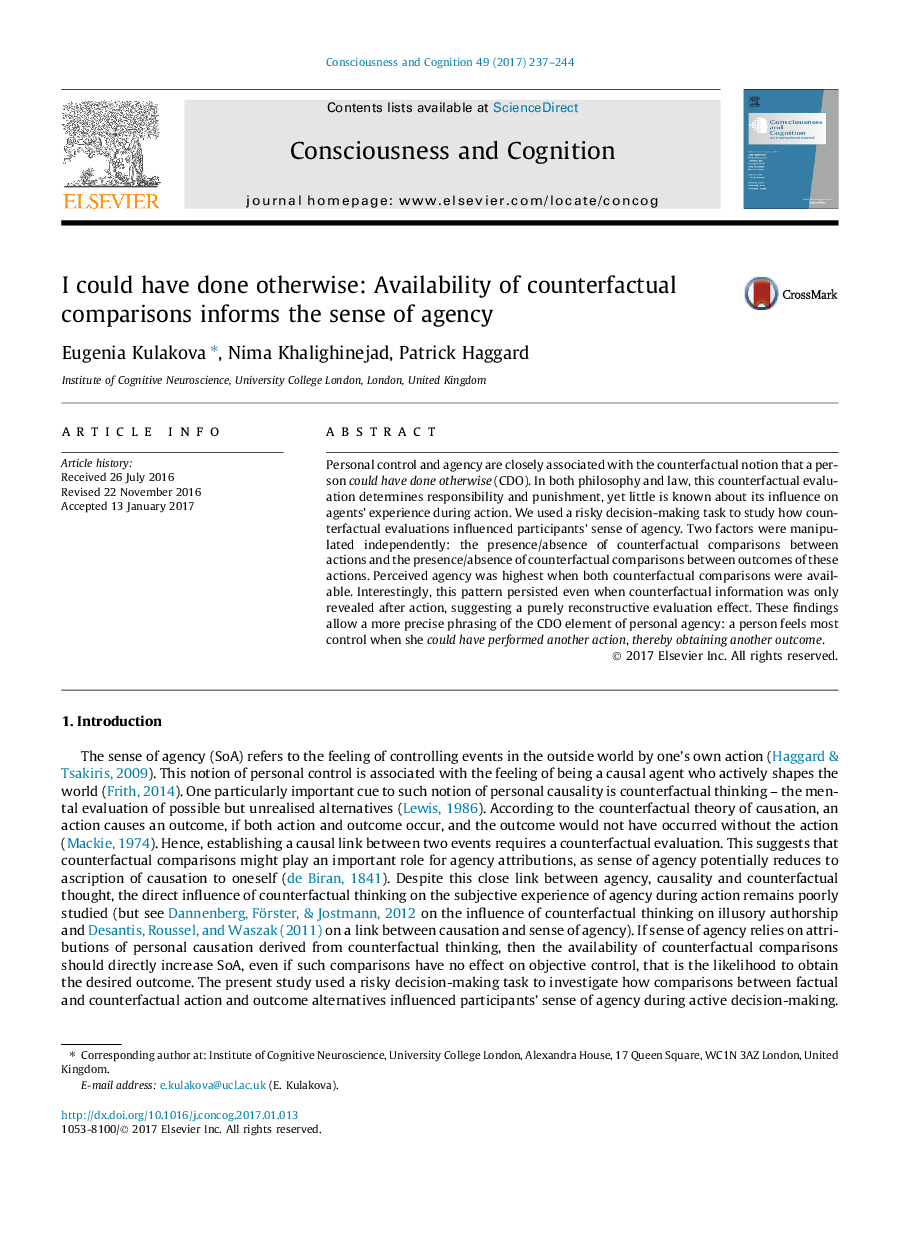| Article ID | Journal | Published Year | Pages | File Type |
|---|---|---|---|---|
| 5041873 | Consciousness and Cognition | 2017 | 8 Pages |
Abstract
Personal control and agency are closely associated with the counterfactual notion that a person could have done otherwise (CDO). In both philosophy and law, this counterfactual evaluation determines responsibility and punishment, yet little is known about its influence on agents' experience during action. We used a risky decision-making task to study how counterfactual evaluations influenced participants' sense of agency. Two factors were manipulated independently: the presence/absence of counterfactual comparisons between actions and the presence/absence of counterfactual comparisons between outcomes of these actions. Perceived agency was highest when both counterfactual comparisons were available. Interestingly, this pattern persisted even when counterfactual information was only revealed after action, suggesting a purely reconstructive evaluation effect. These findings allow a more precise phrasing of the CDO element of personal agency: a person feels most control when she could have performed another action, thereby obtaining another outcome.
Related Topics
Life Sciences
Neuroscience
Cognitive Neuroscience
Authors
Eugenia Kulakova, Nima Khalighinejad, Patrick Haggard,
